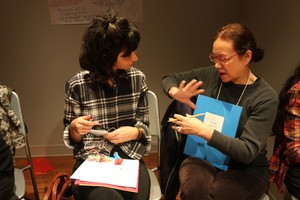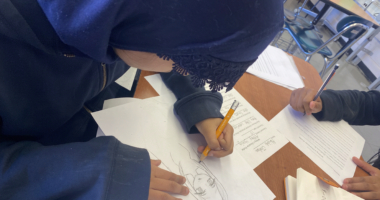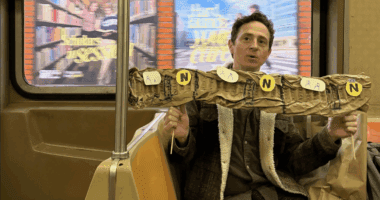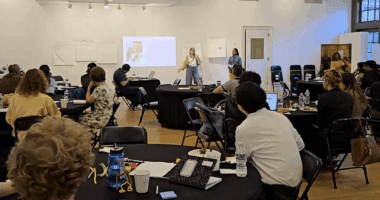The importance of reflection is something that cannot be stressed enough. It is also a valuable lesson we learned during our time with the Teaching Artist Project (TAP). Our lesson plans and teaching paths can be so rich, even after peeling back the layers and allowing for things to simmer with our students for a while. In order for our students to obtain and make the most out of what we are teaching them, it is important for us to always reflect with them. Reflection happens with every lesson and should happen at the end of the residency as well.
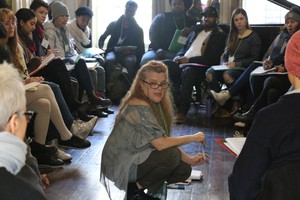
With each lesson, we should always try and see what our students are getting out of our plans by extracting from them what observations they have made, how they are feeling, what they are thinking, and where they expect to go from that point. This lets us know what our students’ state of mind is and it also lets us know if we are being effective and cultivating the intended. Also, it lets us know what we are inadvertently cultivating, which can lead to tweaking our plans, or adding more results that we can report, within them.
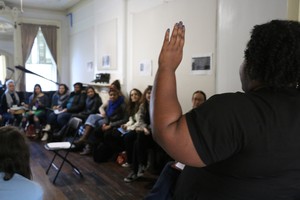
At the end of our residencies, as we finalize our teaching paths, we should partake in one last class devoted to reflection. This allows us to check in on our students and class in totality. Not only does this provide us with excellent feedback, but it also allows for students to share some last thought, reminisce as a unit, and allows opportunity for those who did not get a chance to speak their mind, previously, to communicate. It also gives us the opportunity to reap the benefits of building a new community amongst these particular groups of students and observe how far they have come, individually and as a collective, from the start of the residency. We can, at this point, make some notes on our path, as whole, to see what can be done differently, as well as what really worked and proved to be effective.
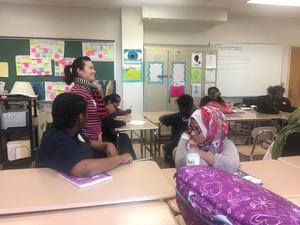
The importance of reflection, during our time with TAP, was something demonstrated experientially. Even after each activity, time permitting, our instructors checked in with us and allowed us a moment to make observations and give feedback. This was also done at the end of our days together, as well as at the end of the entire training process. This important lesson really hit home when we were demonstrating our lesson plans. There was not one group that went up that did not hear back from the instructors how important it was to allow time for reflection, after letting the material stew. Trying to accomplish too much does not allow for things to sink in, students to then formulate feelings and opinions, to then properly reflect upon the important material we are providing. Although it can be challenging to constantly make sure you are not providing too much at one, especially with various age groups, it’s something we should always double check ourselves on.
